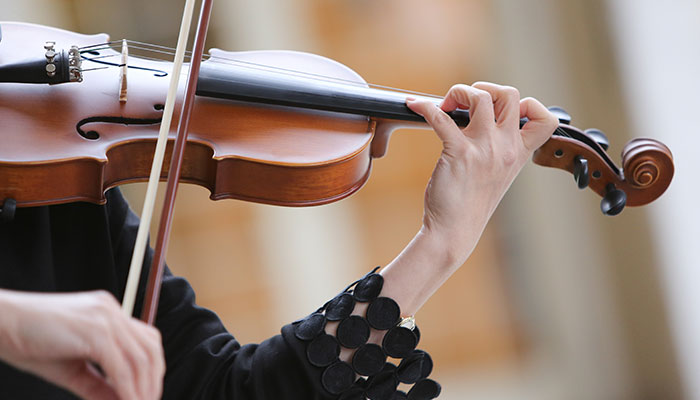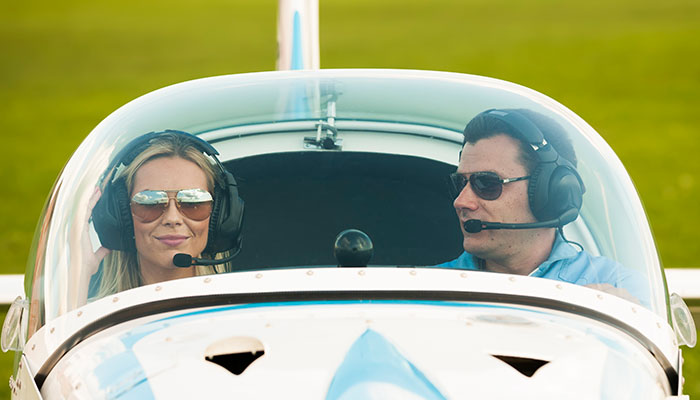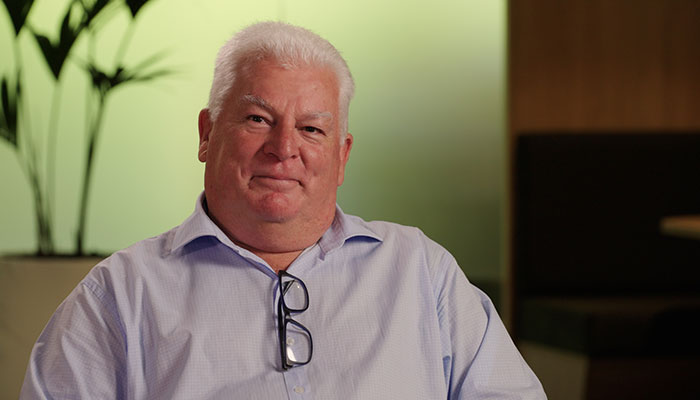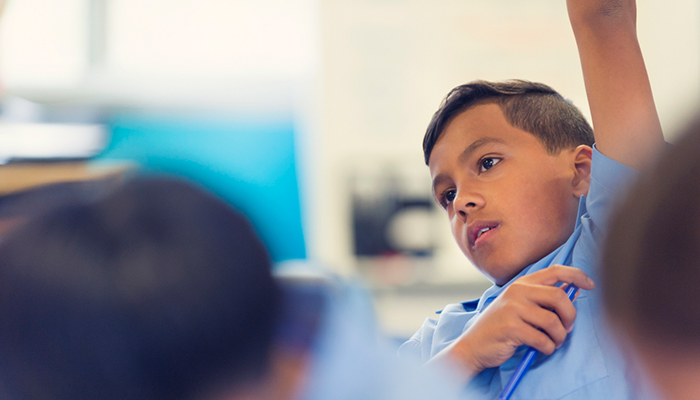There is no doubt that you can learn anything to a particular level, but there are individual differences in capability which means that some people certainly won’t reach the same level of expertise as others.

Practice, practice, practice: with extraordinary effort, and a strong desire to succeed, people can learn anything, says Wiggins.
Some of us are more visual, some are more verbal, some are better at analysing information or more adept at responding to social or environmental cues, and so on.
People do well at those tasks where they have a natural affinity or talent because that affinity enables them to progress at a relatively rapid rate, and so you get reinforcement which increases motivation and you continue to practice.
There are people who definitely struggle when trying to learn something but for one reason or another, the desire to improve themselves is so strong, or the outcomes are so lucrative, or it just makes them feel good and they enjoy it, that they are willing to put in extraordinary amounts of effort.
The dangerous plateau – and how to get off it
In learning, there is an initial, fairly rapid acquisition of information, and then people can hit something of a plateau at different stages of that skill acquisition (depending on the individual) where progress can appear to come to a halt.
That plateau is the real danger point, where many people will give up because they are not seeing any significant benefit for all their investment. It is where you are saying to yourself, ‘I am working hard but I don’t see myself getting anywhere – I’m just not getting it or understanding it’, whether it’s Maths or English, learning to fly a plane or paint a picture, hit a cricket, golf or tennis ball, or do the tango. It can be very disheartening when you see improvement when you first take up an activity and then things seem to come to a halt.
That is where motivation comes in – whether it’s external, such as encouragement from friends or family, or whether it comes from within – to find the willingness to keep going because eventually, you will break through and get to that next stage where you start to ‘see’ things in a whole new way.
Finding your trick
When you are on that plateau, you need to try different things to move past it and those who succeed will have found what we might call a ‘trick of the trade’. Some people will learn the trick that helps them progress to the next stage very quickly because of their natural affinity; others could take much longer.

There's a trick to it: whether flying a plane or smashing sixes for Australia in the cricket, people who master new tasks usually discover a personal 'trick' that helps them progress to the next level of skill.
‘Tricks’ are key because a lot of tasks we do are very difficult to explain. For example, how does Australian cricketer Steve Smith hit a ball so accurately so many times when it’s travelling at 140km/h? Researchers have some ideas about what he might be looking at and how he might be doing it but, in reality we actually don’t really know for sure. There is a ‘trick’ there, and even Steve Smith himself probably doesn’t quite know what it is.
We learn things because we get something out of it ... whether its the mastering of every small improvement we make or just for the enjoyment of life.
‘Tricks’ can be learned from teachers, tutors or books, but they are often things that can’t really be taught and you may have to work hard to find the trick that works for you – by reading a lot of books on the subject, for instance; or by practice, practice, practice.
Examples of a ‘trick’ might be, if you’re learning to fly, looking at a particular part of the runway when you’re coming in to land that makes all the difference to how well you do it; or, if you’re learning to parallel ski, moving your feet in a certain way.
Even people whom we regard as experts are not in agreement about how they do a particular task - you can get 10 experts in a room and they will give 11 different responses about how they do it…and they really might be doing it slightly differently, but importantly, they are getting the same outcome. Through experience, they have worked out what ‘trick’ works for them.
Good teaching is gold
Learning plateaus are also one of the most difficult aspects of teaching, because you are trying to keep someone motivated when they are not seeing any benefit; as a teacher you know it’s going to come, but it’s not quite clicking into place yet, and you are trying to keep the learner motivated and engaged until it does.
Everyone learns differently, so what good teachers will do is recognise those differences and change the way they present the information to meet the needs of learners. Good teachers will recognise the cues from students who are saying, ‘I actually have no idea what you’re talking about’, and will take a step back or rephrase or reorient the information to see if this makes a difference. Changing the nature of the learning environment gets a lot of success in helping people move from the plateau to the next stage.
- Please Explain: Is it good to be a perfectionist?
- Just how dangerous is bushfire smoke to your health?
Simulation offers a tremendous opportunity to assist with this process because we can turn off certain aspects to make an ‘aircraft’ easier to fly or a ‘motor vehicle’ easier to drive, and then gradually increase the difficulty, recognising that individuals are different. This is one of a number of forms of part-task training that we are exploring in our Simulation Hub, together with psychological tools that help us identify who will need support in a particular context, when they need support, and what type, so that we can intervene more effectively and efficiently.
Not all of us need to be experts
It’s a combination of genetics plus the nature of the environment that provides the opportunity for talent to emerge. To be a master at something, you need to have some inherent capability but, even if you have talent, if you don’t have the support and opportunity to develop that talent, then you are still likely to have difficulty in developing expertise.
But it’s not always the case that we learn things to be the world champion; we learn things because we get something out of it, whether it’s the mastering of every small improvement we make, or a social aspect of just getting involved, or being part of a team, or fitness, or ultimately, just for the enjoyment of life.
- Mark Wiggins is Professor of Organisational Psychology at Macquarie University.



